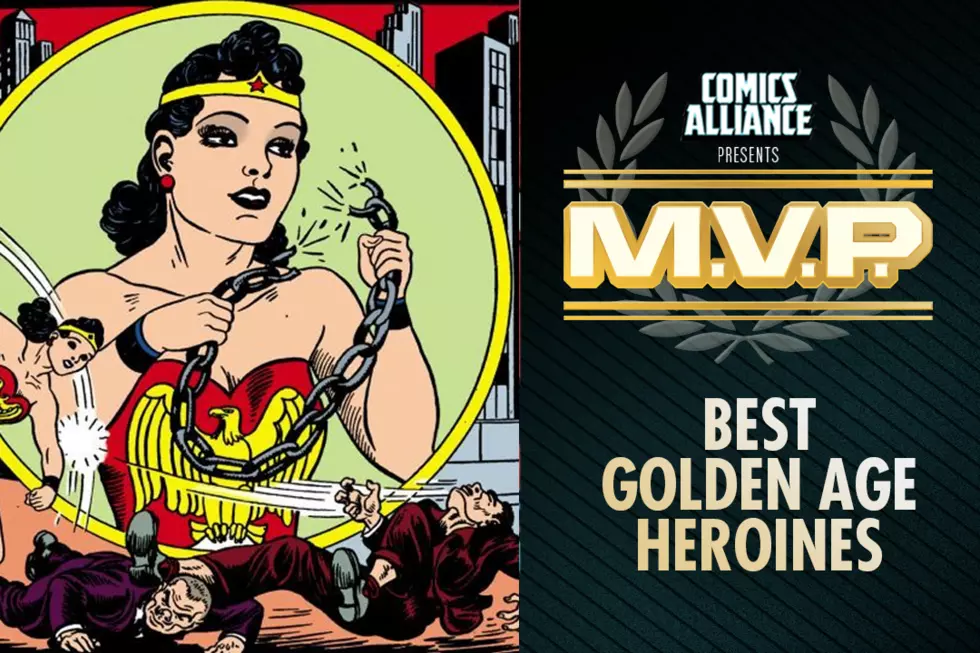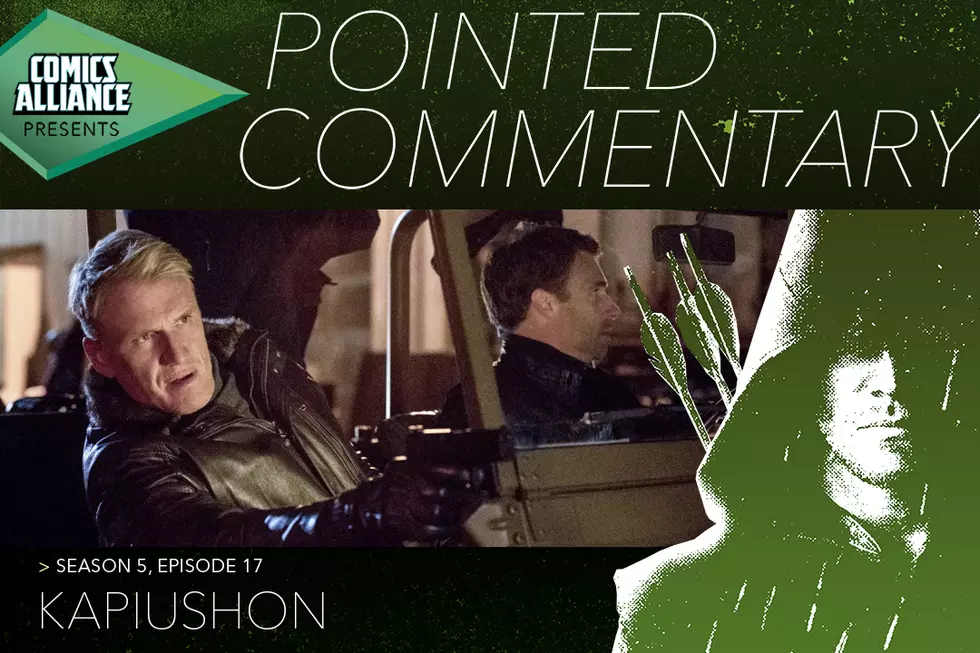
Buy This Book: ‘Black Canary’ Leaves ‘Batgirl’ Behind For A Rock ‘n’ Roll Brawl
Like pretty much everyone else who read it, my reaction to Brenden Fletcher, Cameron Stewart, and Babs Tarr's Batgirl relaunch was something along the lines of, "Yes, please, I would like more of this." That said, there was a pretty pessimistic part of me that didn't think we were actually going to get it. I just assumed that Batgirl was going to exist in isolation as one of those rare reboots that took things in an entirely different direction and breathed new life into a great character, yet didn't have an impact anywhere else.
Fortunately, I was wrong. This week saw the release of the new Black Canary series from Fletcher and Annie Wu, and for all intents and purposes, it's a spinoff of Batgirl that takes the same approach to rebuilding a great character for a new audience. This time, it's Black Canary recast as a mysterious lead singer who can't stop getting into fights, and y'all, it's pretty awesome.
Black Canary's actually one of my favorite characters --- or at least, the old Black Canary is, the one that I grew up with in books like Justice League International and Birds of Prey. Like Wally West, she's one of those characters that ended up defining that era of DC Comics, although her route was a whole lot weirder than his. She was a Golden Age character who was revived along with the rest of the Justice Society when Earth-2 was introduced, and then became one of the few characters to make the leap to Earth-1 and DC's mainstream continuity. And if that wasn't confusing enough, when Crisis came along to smooth out the timeline, she was split into two characters, mother and daughter heroines for different eras.
For years, that was what defined her, and it worked really well in a DC Universe that was built on the idea of legacy. She had the connections that made it work, and while I understand that Wonder Woman probably should be a founding member of the Justice League, having Black Canary in that role made a lot of sense for that version of the universe. But when that version of the DCU went out the window, a big part of what held Black Canary together as a character went with it, which raised the question of just how they were going to fit her into the new version.

To be honest, I didn't follow the New 52 version of Birds of Prey, so I don't know how successful the initial attempt was --- and I also don't know exactly why Dinah was so mad at Barbara when she showed up in Batgirl --- but I do know that the version we're seeing from Fletcher and Wu works with the new universe's theme in a way that the old one never could.
When the New 52 relaunched, one of the big talking points for continuity obsessives like me was the idea that this was a DC Universe that was built to be younger than the older model. Drawing a line between "Batman's been around for 10 years" and "Batman's been around for 5 years" might seem like it's a pretty arbitrary distinction, and for a lot of these books, that's what it has been. But recently, we've seen a push towards trying to make that idea of youth and energy matter for the characters. The idea of Robin as being functionally equivalent to a summer internship program still feels a little weird, sure, but we've also got an origin story for Batman built around being way more reckless than we usually see, and Superman riding around the country on a motorcycle wearing jeans and a t-shirt.
And, of course, we have Batgirl, and the stories about iPhone apps plotting murders that could not be more right now. Which brings us to Black Canary, and her new role in a career that's about as "young" as you can possibly get: Singer in a rock 'n' roll band who just can't stop jumping off the stage to beat up jerks.
Even if the book itself wasn't a fantastic read with absolutely beautiful art, which it is, I would love this --- and not just because I'm on record as someone who definitely likes comic books about rock bands. It's a perfect combination of the themes of both the universe and of Black Canary herself, taking the idea of a character whose voice is literally her super-power and putting her in a situation that lets her use that voice in a way that we can all get pretty excited about.
Putting Black Canary in the role of a singer isn't quite a new idea --- she sure had her share of musical numbers when she showed up on Batman: The Brave and the Bold --- but I don't think it's ever been done quite like this. And as an added benefit, it puts her classic costume in a whole new context.
Wu does an amazing job with that particular part of it, too. She dresses Black Canary as a performer, but also takes the time to show us the bruised knuckles under her gloves. it's a really awesome way to introduce her.
I'm also pretty fond of the setup for just why a superhero has signed up to tour with a band that shares her name, which has the amazingly '80s movie premise of Canary signing a contract so that she can earn money to rebuild her dojo. I love that so much.
The only things I don't like about this issue are the half-page ads for Twix, where Nick Lachey pops up to tell me about candy in the middle of a pretty interesting conversation between characters. It breaks up the story in a way that's pretty unavoidable --- which, I suppose, was the idea, since you can't not look at an ad that's also on a story page. It's annoying, but at the same time, this is a book that's worth putting up a little annoyance to get through.
Beyond that, there's not a darn thing wrong with the story and art, and the best thing about is that while it's certainly using Batgirl as its jumping off point, it's a completely different book. The tone is different, the threats area different, but it has that same feeling of being something that you've never really seen before, told in a way that you definitely want to see more of.
Check Out Some Strange and Surprising DC Comics Facts
More From ComicsAlliance




![MVP: Who Is The Greatest Birds Of Prey Member? [Poll]](http://townsquare.media/site/622/files/2017/02/BOP-Votes.png?w=980&q=75)

![Comics’ Sexiest Female Characters (From A Queer Perspective) [Love & Sex Week]](http://townsquare.media/site/622/files/2017/02/hg_featured.jpg?w=980&q=75)


